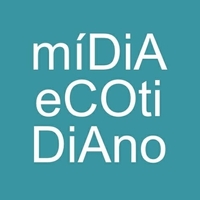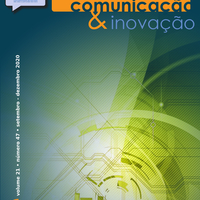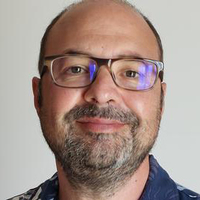
Ivan Paganotti
PhD in Communication Science at Universidade de São Paulo (USP) - 2015, researcher at Midiato/ECA-USP and CHECAR/PósCom-Umesp
Supervisors: Mayra Rodrigues Gomes (USP) and Helena Sousa (U.Minho)
Address: São Paulo, Brasil
Supervisors: Mayra Rodrigues Gomes (USP) and Helena Sousa (U.Minho)
Address: São Paulo, Brasil
less
Related Authors
Revista Comunicação & Inovação
Universidade Municipal de São Caetano do Sul (USCS)
Fernanda Nalon Sanglard
Pontificia Universidade Catolica de Minas Gerais
Nara Lya Cabral Scabin
Pontifícia Universidade Católica de Minas Gerais
Thalita Mascarelo
Fundação Oswaldo Cruz
Caroline Patatt
Universidade da Beira Interior
Fernando J da Rocha
Universidade da Beira Interior
Vitor de Sousa
Universidade de Trás-os-Montes e Alto Douro (UTAD)
InterestsView All (21)









Uploads
Papers by Ivan Paganotti
This book analyzes the origins and transformations of discourses around the term “politically correctness”. The book evaluates 149 articles and opinion articles published by Folha de S. Paulo since 1990, chronologically reconstructing three different moments: at first, this term is imported from American culture as a “trend,” or an individual behavior; then, it is represented as a cultural “movement” from the left, with political objectives to combat discrimination through the replacement of offensive words; finally, as an “ideology” adopted by a group that conquers power structures that could threaten free speech. The book assesses the relationship between the Folha newspaper’ predominantly critical position against politically correct practices, and the emergence of an influential discourse in the opposite political field, which supports politically incorrectness.
documentation allows a fruitful analysis of censorship capillarity, its broad and flexible regulation, and the discussion of its legitimacy in a period when the government repression even sought to control the very visibility of its censorship practice.
Abstract: Fuvest selects future students of Universidade de São Paulo, and this exam traditionally influences the adoption of some topics of discussion in high school classrooms. This article adopts critical discourse analysis to evaluate how Fuvest bases its questions on recent events, and how this tests quote texts published by the press. These practices can signal some assumptions (by evaluators, students and others involved in the educational process) concerning students' media consumption. This research will analyze Fuvest's strategies on how to select students who routinely consume news sources and who are able to elaborate academic and critical reflections about their daily lives. There is a considerable presence of current themes and news sources on Fuvest's exams from 2010 to 2019, in frequencies similar to other media traditionally linked to scholar exams, such as literary works.
Abstract: Diverging perspectives on the current reflection concerning different critical stances have led to the concept of metacritique. This study discusses the possibility of establishing a way of media culture critic by means of metacritique, focusing on the peculiar difficulty to determine a consensual definition to this concept, due to its multiplicity and variability. This paper also presents how different fields of knowledge (sociology in special) can apply the concept of metacritique in relation to media studies. This article suggests that media metacritique is a notion that could foster media practices analysis, and demonstrates how this concept is relevant considering recent television series and movies.
abertura democrática no qual concessões públicas de meios de comunicação foram usadas como moeda de troca para garantir o apoio entre elites locais na transição política nacional.